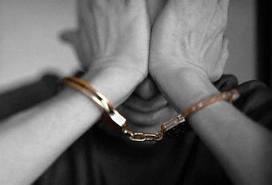Attempt
In a recent decision of the California First District Court of Appeal reinforced the principle that an attempt, under California law, requires more than mere preparation to commit a crime. There is no offense except when the defendant commits an unequivocal act or acts that, unless frustrated by some external circumstance, would result in the accomplishment of the intended offense.
If convicted, generally speaking a defendant found guilty of the attempt will be punished by imprisonment in the state prison for one-half the term of the offense attempted. However, if the crime attempted is willful, deliberate, and premeditated murder, as defined in Penal Code Section 189, the person guilty of that attempt shall be punished by imprisonment in the state prison for life.
Penal Code Section 664 States:
“Every person who attempts to commit any crime, but fails, or is prevented or intercepted in its perpetration, shall be punished where no provision is made by law for the punishment of those attempts, as follows:
(a) If the crime attempted is punishable by imprisonment in the state prison, the person guilty of the attempt shall be punished by imprisonment in the state prison for one-half the term of imprisonment prescribed upon a conviction of the offense attempted. However, if the crime attempted is willful, deliberate, and premeditated murder, as defined in Section 189, the person guilty of that attempt shall be punished by imprisonment in the state prison for life with the possibility of parole. If the crime attempted is any other one in which the maximum sentence is life imprisonment or death, the person guilty of the attempt shall be punished by imprisonment in the state prison for five, seven, or nine years. The additional term provided in this section for attempted willful, deliberate, and premeditated murder shall not be imposed unless the fact that the attempted murder was willful, deliberate, and premeditated is charged in the accusatory pleading and admitted or found to be true by the trier of fact.
(b) If the crime attempted is punishable by imprisonment in a county jail, the person guilty of the attempt shall be punished by imprisonment in a county jail for a term not exceeding one-half the term of imprisonment prescribed upon a conviction of the offense attempted.
(c) If the offense so attempted is punishable by a fine, the offender convicted of that attempt shall be punished by a fine not exceeding one-half the largest fine which may be imposed upon a conviction of the offense attempted.
(d) If a crime is divided into degrees, an attempt to commit the crime may be of any of those degrees, and the punishment for the attempt shall be determined as provided by this section.
(e) Notwithstanding subdivision (a), if attempted murder is committed upon a peace officer or firefighter, as those terms are defined in paragraphs (7) and (9) of subdivision (a) of Section 190.2, a custodial officer, as that term is defined in subdivision (a) of Section 831 or subdivision (a) of Section 831.5, a custody assistant, as that term is defined in subdivision (a) of Section 831.7, or a non-sworn uniformed employee of a sheriff’s department whose job entails the care or control of inmates in a detention facility, as defined in subdivision (c) of Section 289.6, and the person who commits the offense knows or reasonably should know that the victim is a peace officer, firefighter, custodial officer, custody assistant, or non-sworn uniformed employee of a sheriff’s department engaged in the performance of his or her duties, the person guilty of the attempt shall be punished by imprisonment in the state prison for life with the possibility of parole. This subdivision shall apply if it is proven that a direct but ineffectual act was committed by one person toward killing another human being and the person committing the act harbored express malice aforethought, namely, a specific intent to unlawfully kill another human being. The Legislature finds and declares that this paragraph is declaratory of existing law.
(f) Notwithstanding subdivision (a), if the elements of subdivision (e) are proven in an attempted murder and it is also charged and admitted or found to be true by the trier of fact that the attempted murder was willful, deliberate, and premeditated, the person guilty of the attempt shall be punished by imprisonment in the state prison for 15 years to life. Article 2.5 (commencing with Section 2930) of Chapter 7 of Title 1 of Part 3 shall not apply to reduce this minimum term of 15 years in state prison, and the person shall not be released prior to serving 15 years’ confinement.”
Even when it is undisputed that a defendant intended to break the law, his conduct may still be deemed to be at a preliminary stage. His/her conduct may be preparatory only, if further preparation is necessary, such as, the purchase of a necessary ingredient, before he or she could actually attempt to commit the offense.
ATTEMPT: What the Prosecutor MUST Prove Beyond a Reasonable Doubt
Jury Instruction 460. Attempt Other Than Attempted Murder (Pen. Code, § 21a)
[The defendant is charged [in Count ] with attempted <insert target offense>.]
To prove that the defendant is guilty of this crime, the People must prove that:
1. The defendant took a direct but ineffective step toward committing <insert target offense>;
[AND]
2. The defendant intended to commit <insert target offense>.
A direct step requires more than merely planning or preparing to commit <insert target offense> or obtaining or arranging for something needed to commit <insert target offense>. A direct step is one that goes beyond planning or preparation and shows that a person is putting his or her plan into action. A direct step indicates a definite and unambiguous intent to commit <insert target offense>. It is a direct movement towards the commission of the crime after preparations are made. It is an immediate step that puts the plan in motion so that the plan would have been completed if some circumstance outside the plan had not interrupted the attempt.
[A person who attempts to commit <insert target offense> is guilty of attempted <insert target offense> even if, after taking a direct step towards committing the crime, he or she abandoned further efforts to complete the crime or if his or her attempt failed or was interrupted by someone or something beyond his or her control. On the other hand, if a person freely and voluntarily abandons his or her plans before taking a direct step toward committing <insert target offense>, then that person is not guilty of attempted <insert target offense>.]
To decide whether the defendant intended to commit <insert target offense>, please refer to the separate instructions that I (will give/have given) you on that crime. [The defendant may be guilty of attempt even if you conclude that <insert target offense> was actually completed.]
If you or someone you know has been charged with an Attempt crime, contact John J. Stanley & Associates at (818) 769-5200 for your free consultation.


